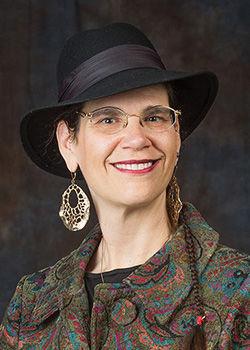There is a tradition to read strands of the names of the Torah portions as a message in and of themselves. A particularly famous one is used when praising someone extensively after their death (so extensively to the point that you wonder what would have been said about them in their lifetime). "Acharei Mot K'doshim Emor". Three Torah portions from Vayikra (Leviticus) that if read as a sentence state: 'after they are dead you say they are holy.'
Similarly, my friend and colleague, Rabbi David Zeller (of blessed memory) would read the four opening Torah portions of B'reishit (Genesis) as a meditation.
B'reshit - The Beginning.
Define your beginnings; acknowledge that now that the holidays are over you are standing at the threshold of a new beginning, a new year. In Israel it is common knowledge that everything happens "acharei heh'chaggim" (after the holidays) - diets, therapy, weekly visits to the gym, university semester's, etc. Before embarking on the journey that will unfold throughout the year, one needs to mark the beginning point and define for oneself the nature and purpose of the journey.
Noach - Rest.
After coining the name and nature of our set course we are asked to rest - no'ach is connected to the Hebrew root that means rest and ease. While the seemingly response for setting goals would be to rush out and manifest this dream, we see that in this form of contemplation we are asked to sit one more moment. To hold the vision inside our hearts, to embrace the trajectory as it stands naked in front of us; to embrace the excitement and trepidation of the commitment before the turmoil of our actions blurry our vision of the destination. It is this sitting and holding that enables our decisions to mature and for us to grow into them.
Lech L'cha - Go to yourself.
The challenge that Lech L'cha poses to us is to not get lost in the thrill and the unknown of our new path. Mass media and the plethora of information that bombard us continuously demand of us to exercise our muscles of self discernment on a daily basis. What is worthy and virtuous for one may be harmful and damaging for someone else. How do we set out to achieve our goals in a manner that is conducive to our essence and assists us in maintaining our integrity? As lofty and holy as these new commitments are, if they lead us astray from ourselves then sitting in a Lech L'cha position calls us back to ourselves.
Va'yeira - See, Reveal
This is the last part of the meditation. Until here we have created a vision for ourselves; we have sat with it; we have observed that it doesn't compromise our integrity. Now is the time to manifest all that we have pondered in our minds and hearts. Though the Ba'al Shem Tov (1700-1760), the founder of the Chassidic movement says 'A person is where their thoughts are', and both Nelson Mandela and Natan Sharansky have said that only their bodies have been imprisoned, they themselves have never been behind bars, it would be dishonest to say that contemplating about going to the gym is equivalent to being at the gym. When we come to Va'yeira we are asked to practice what we have promised ourselves.
This Shabbat is also the first Shabbat in the month of Ram Cheshvan. More commonly it is called Mar Chehvan, as if to say it is bitter (Mar) because it is a month that has no holidays in it; not even a fast day for that matter! (Chassidim call it Ram Cheshvan because Ram means elevated and in the mystical traditions this month was left barren of holidays since it is being reserved for the inauguration of the third temple). In many ways the whole month is a month of No'ach, of sitting. A month to dwell on all that has happened during Tishrei; a month that as the external waters of the flood that we will read of this Shabbat come gushing down, we are able to sit with the quiet of reflection and projection that last month opened us up to.
As entering this Shabbat on the cusp of a new era in the life of the American people, may we find a way, wherever it is that we are sitting, to dwell in peace, to rest with vision.
Shabbat shalom.

